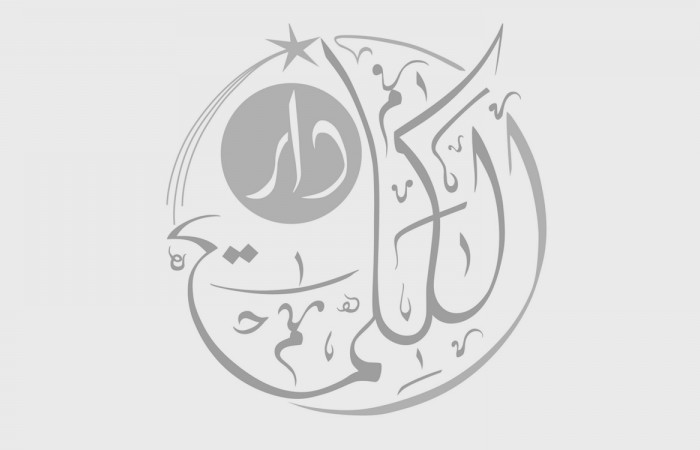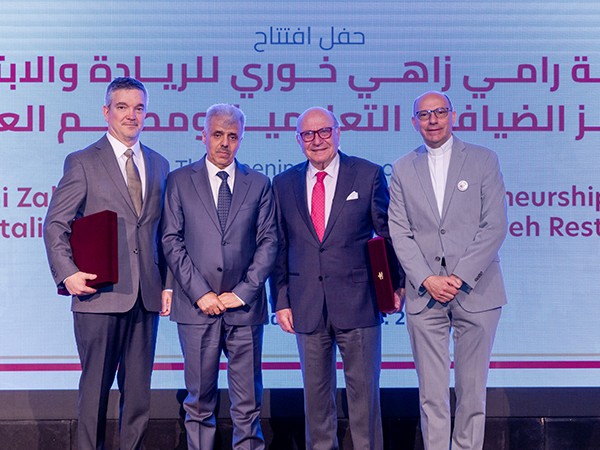Latest News
The two-day conference was held on May 27 and 28, 2025, organized by Dar Al-Kalima University and the Higher Presidential Committee of Church Affairs in Palestine, brought together scholars, clergy, theologians, and policy experts from Palestine and across the Nordic countries to examine Christian Zionism in the Nordic countries, and to assess the church’s responsibility amidst the crisis in Palestine, especially in Gaza. A total of 19 participants from seven different countries- Denmark, Sweden, Finland, Norway, Palestine, Jordan, and South Africa attended the conference. The conference promoted critical dialogue, testimonies, and scholarly presentations offering theological reflection, political critiques, recommendations, and strategies.
The opening session on May 27 began the conference with two prominent figures: Rev. Prof. Dr. Mitri Raheb and Rev. Dr. Frank Chikane. Dr. Mitri presented a wide-ranging analysis of Christian Zionism within a global context, while Dr. Chikane offered a deeply personal reflection informed by his experience with apartheid in South Africa, drawing parallels to the current situation in Israel and Palestine.
The next panel discussed Christian Zionism in the Nordic countries starting with Finland which examined how Christian Zionism impacts in church institutions and public demonstrations and how Christian Zionism is both an ideology and a movement. Christian Zionism in Norway was then presented, by citing examples such as Joint Committee for Israel's 11 May celebration under the motto Am Yisrael Chai ('The People of Israel Live') in front of the Norweigan Parliament. In Sweden’s context, the presenter highlighted anti-Semitism debates, the Church of Sweden's engagement, and political involvement from Christian Democrats. Lastly, the presenter discussed about Christian Zionism in Denmark by identifying four strands of Christian Zionism in the country: philo-Semitism, fundamentalist interpretations, Christian NGOs, and post-Holocaust theology, including some expressions of anti-Islam sentiment. The session concluded with a group discussion and explored the implications of these national variations and the broader political positions they reflect.
The third panel focused on ethnonationalism, speaking about the theological basis for strong Christian Zionism in Finland by citing recent comments by bishops and academic leaders, and it presented a range of examples illustrating how individuals self-identify as Christian Zionists. The discussion that followed explored the role of church leadership and the necessity for more assertive public messaging by religious institutions and that churches can no longer stay ignorant about the Palestinian situation.
The second day of the conference, May 28, began with His Excellency Dr. Ramzi Khoury, who offered remarks that reiterated the importance of the Palestinian struggle for rights and dignity. The first panel discussed how Israel and Palestine is tackled in the Nordic countries, firstly by emphasizing the critical need for humanitarian aid to Gaza. Ambassador Prof. Dr. Manuel Hassassian responded by elaborating how Palestinians deserve political sovereignty and equality, stating firmly that Palestinians will never surrender to occupation. This was followed by an insightful presentation from Berit Hagen Agøy, who offered an overview of Norwegian parliamentary politics and addressing the positions of various parties, such as the Labour Party, the Christian Democrats, the Progress Party, and the Conservatives on issues related to Palestine and Israel. Her presentation aided the conversation around political-theological alignments in Norway.
The second panel of the day focused on Gaza and the Christian community. Ambassador Amira Hanania gave a poignant presentation on the 77-year siege of Gaza, highlighting the shrinking Christian population and showing a short documentary film documenting the destruction of churches and community organizations in Gaza since October 7. She underlined the ongoing threat to Palestinian Christians. The next presentation discussed the response of Swedish churches on the situation in Gaza and the West Bank, including the Uniting Church and Pentecostal movements by offering historical context about Swedish religious figures who visited Jerusalem. Lastly, Norway’s churches responses to Gaza and the West Bank was explored and demonstrated the use of media sources to illustrate the churches’ silence or implicit support for Israel’s actions in Gaza and the West Bank.
The final panel discussed aid to Palestine and human rights and international law after following the events of October 7. Maria Hammershoy opened with a detailed description of current conditions in Gaza. She highlighted the work of Caritas Jerusalem and its inclusive outreach, describing firsthand experiences at the Rosary School and the important role played by local religious communities. Dr. Wasfi Kailani gave an important presentation on the misuse of biblical archaeology by Christian Zionists and how these narratives distort Palestinian history and culture. Bishop Atle Sommerfeldt concluded the panel with an analysis of Nordic Christian organizations that support or engage with Christian Zionists by raising important concerns about the funding and dissemination of CZ-related messaging.
The final session served as a concluding panel, bringing together major insights from the two days. Rev. Dr. Frank Chikane reflected on the conference's themes and emphasized the missional responsibility of churches. He proposed specific actions, including organizing high-level church delegations to Palestine, advocating for international protest days, and ensuring churches play a leading role in informing their communities and defending human rights.
Rev. Prof. Dr. Mitri Raheb concluded the conference with a moving and riveting address. He called for clarity in framing the situation in Palestine as a case of settler colonialism. He stressed the urgency of recognizing what is happening in Gaza as not an accident but a strategy to erase and remove all Palestinians. He challenged churches to reject the narrative that Israel is merely a victim and to recognize that the Bible is being weaponized against Palestinians. He also insisted for the development of a new theological vision- one grounded in justice, resistance, and solidarity. He concluded with proposing follow-up meetings and more conferences on this issue in other Nordic countries in order to bring more scholars, activists, religious leaders, and interfaith voices to expand the movement against Christian Zionism and to build partnerships for justice in Palestine. The conference concluded with two key recommendations. The first is to hold a follow-up conference in Norway to develop a coordinated strategy for addressing the impact of Christian Zionism in the Nordic region. The second is to facilitate a high-level international church solidarity delegation to visit Palestine and Gaza to strengthen global church engagement and solidarity with the Palestinian people.
In conclusion, this conference marked a significant step toward reshaping how Nordic countries understand and respond to Christian Zionism and the Palestinian cause. It deepened international networks, offered new theological insights, and created a foundation for future collaboration and advocacy. The conference ended with a sense of urgency, solidarity, and resolutions ending with a clear message that there is no time for silence, but a time for theological courage, global collaboration, and action.
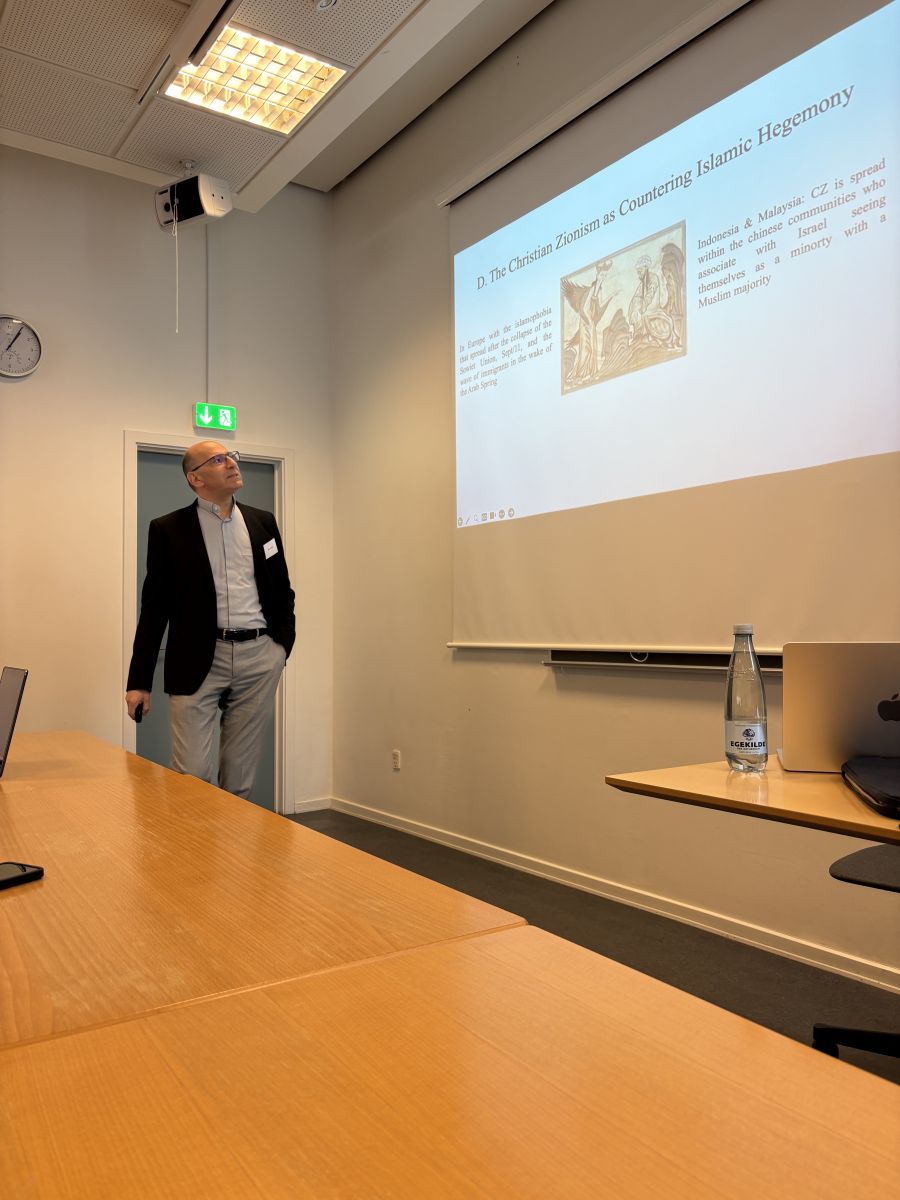
Rev. Prof. Dr. Mitri- Day 1
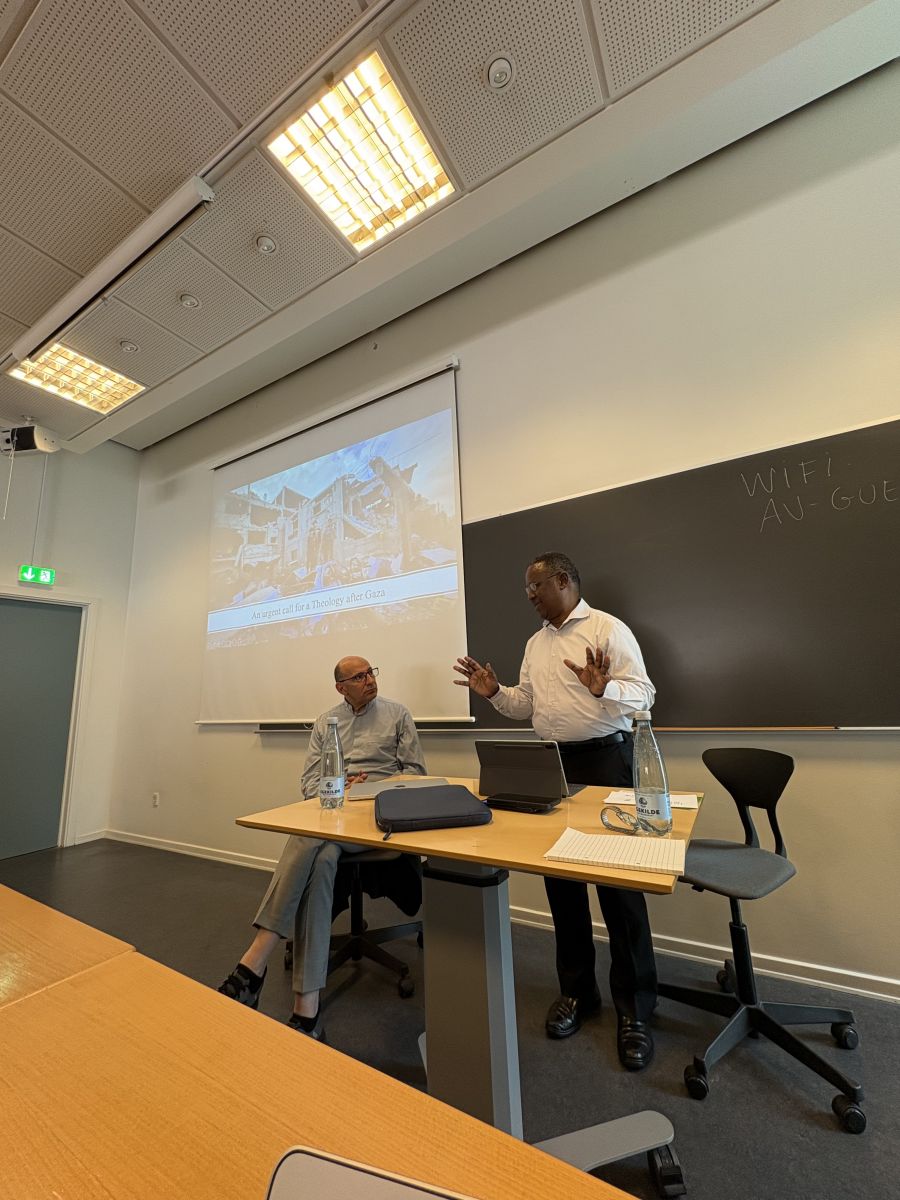
Rev. Dr. Frank Chikane- Day 1
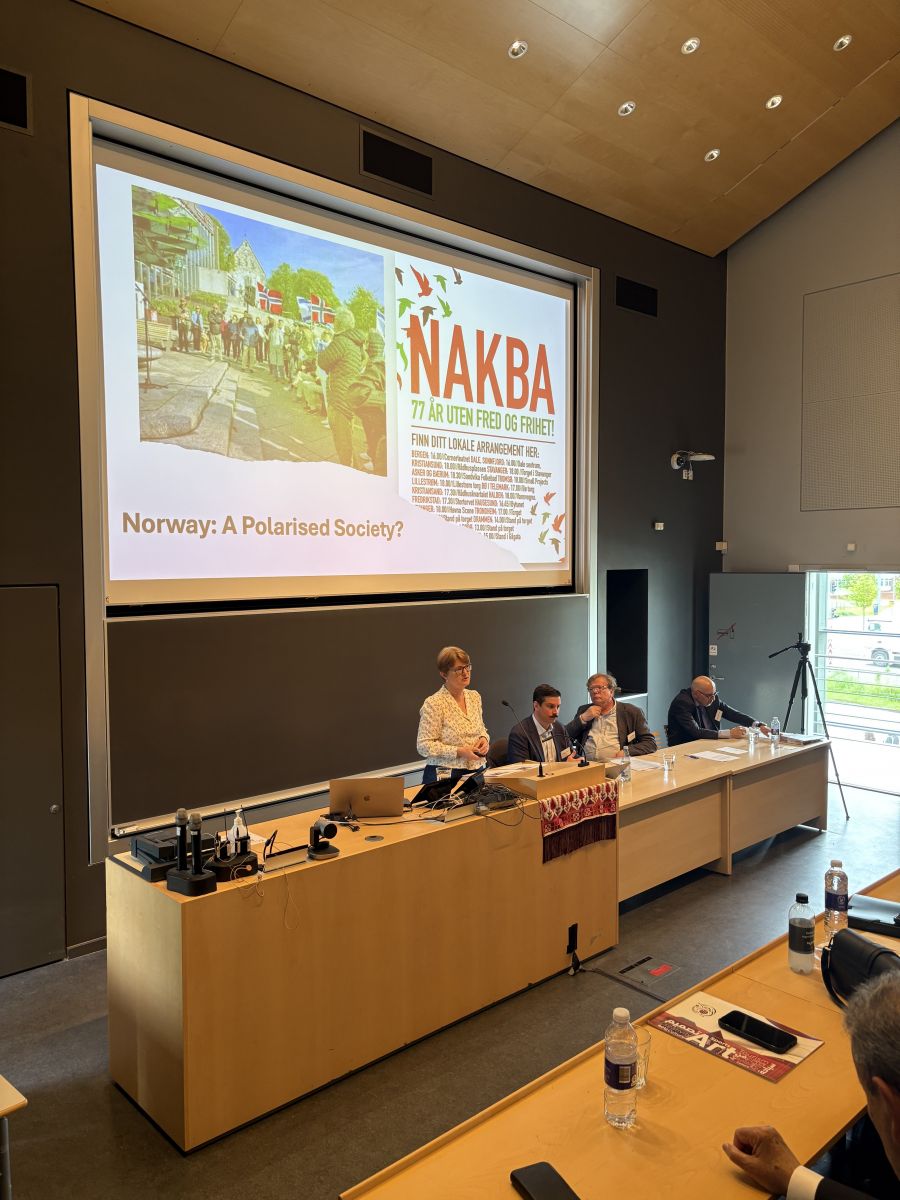
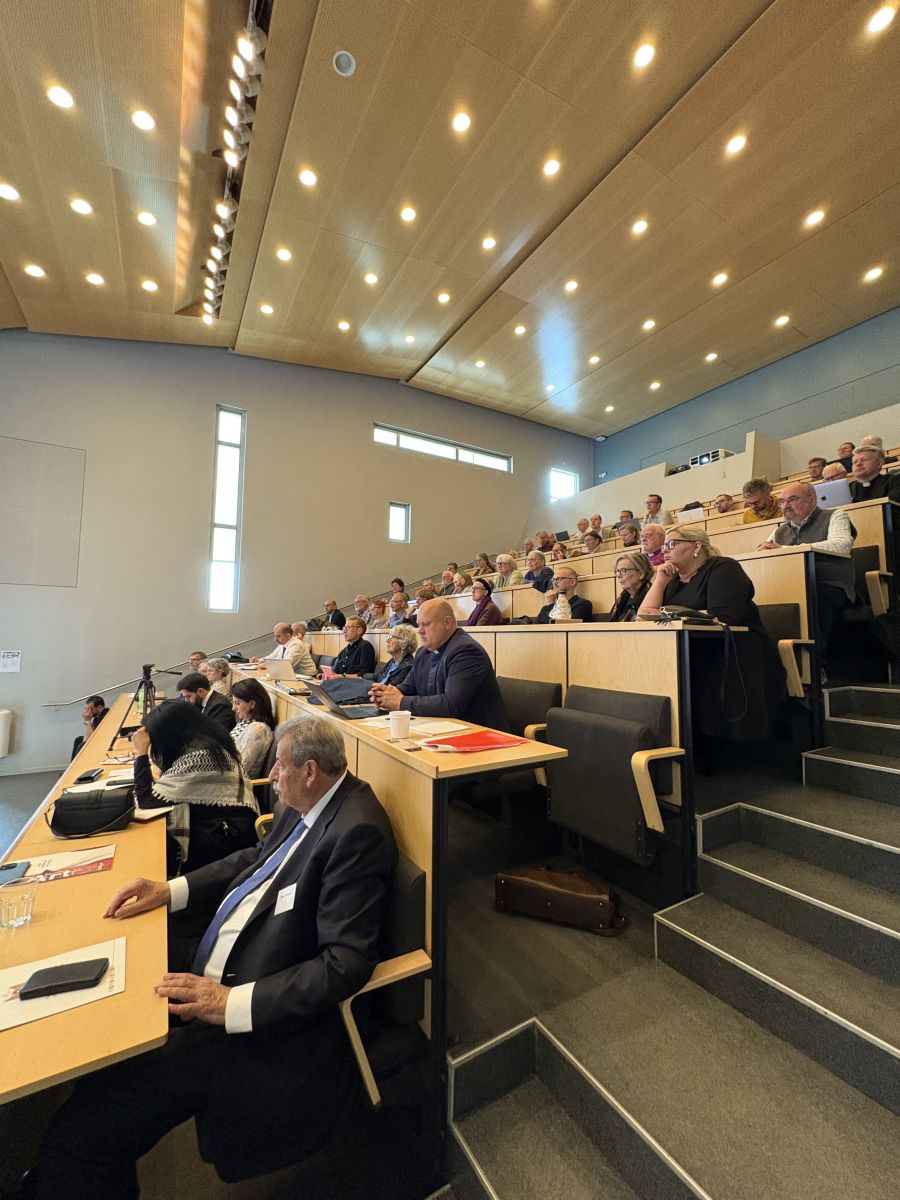
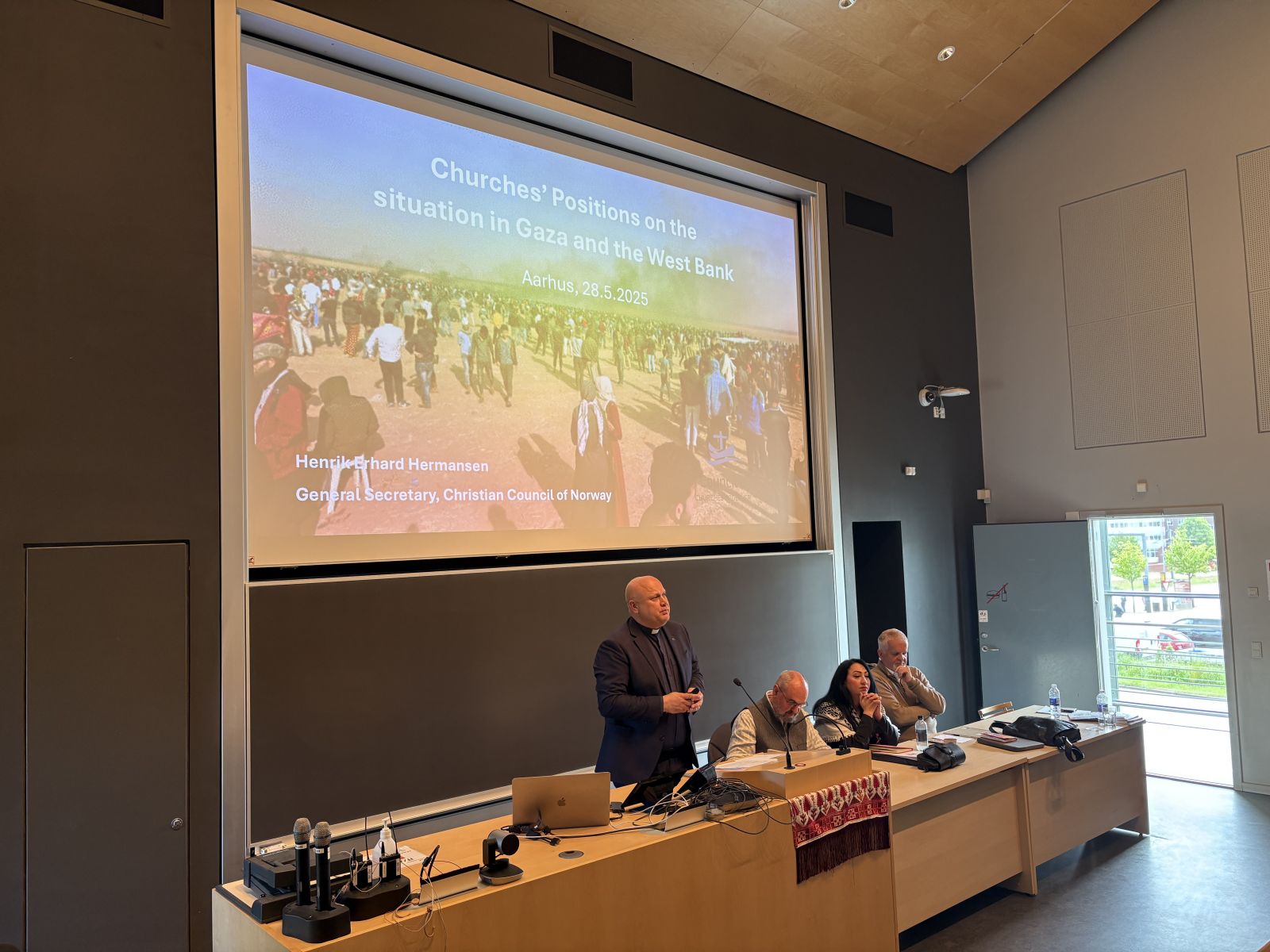
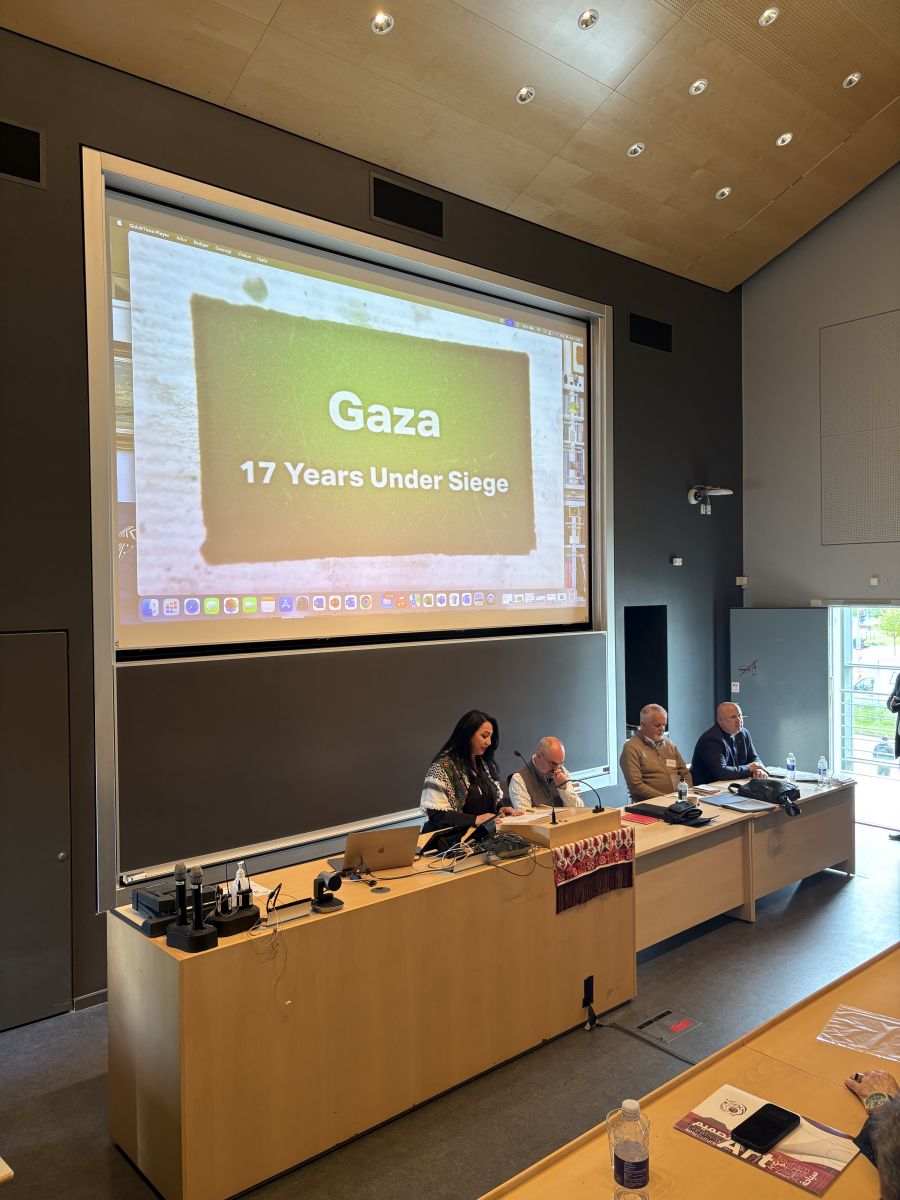
Ambassador Amira Hanania
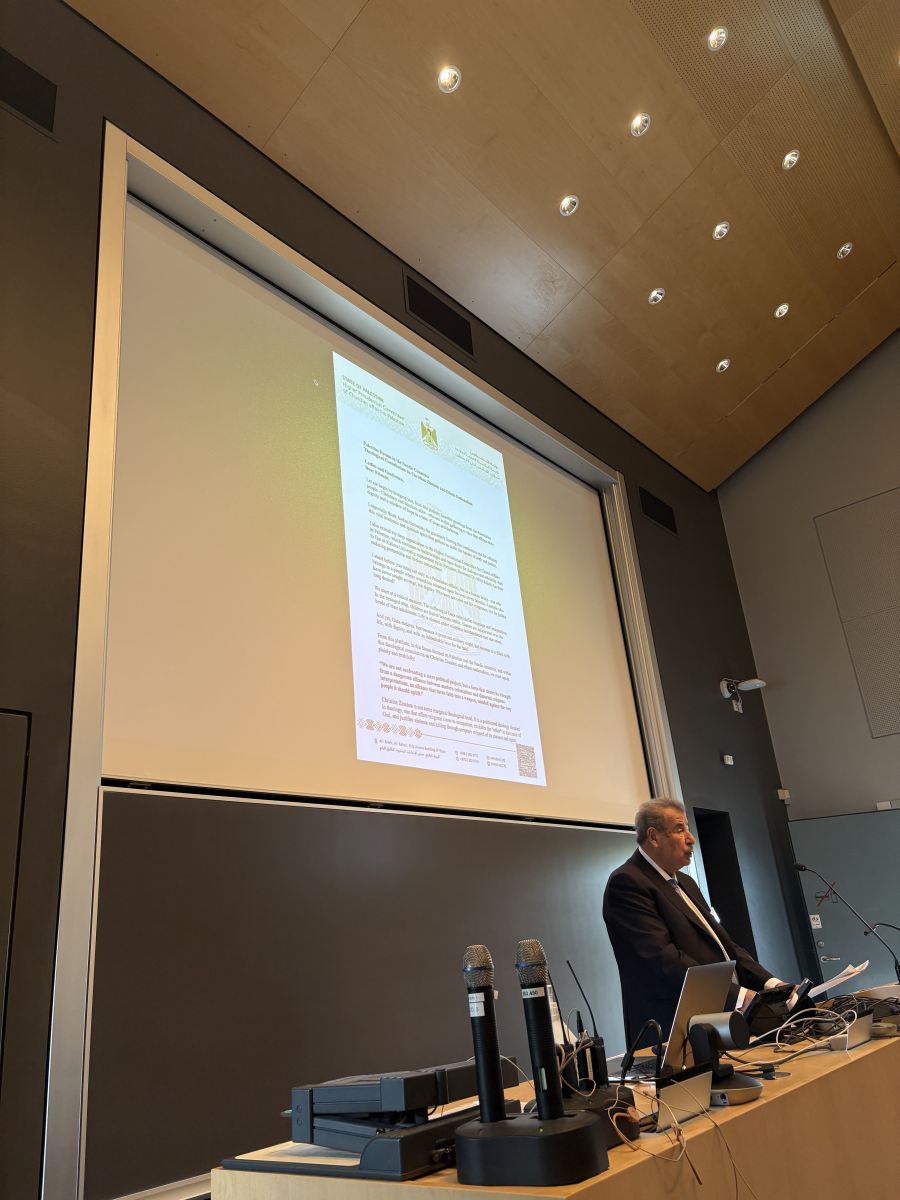 His Excellency Dr. Ramzi Khoury
His Excellency Dr. Ramzi Khoury
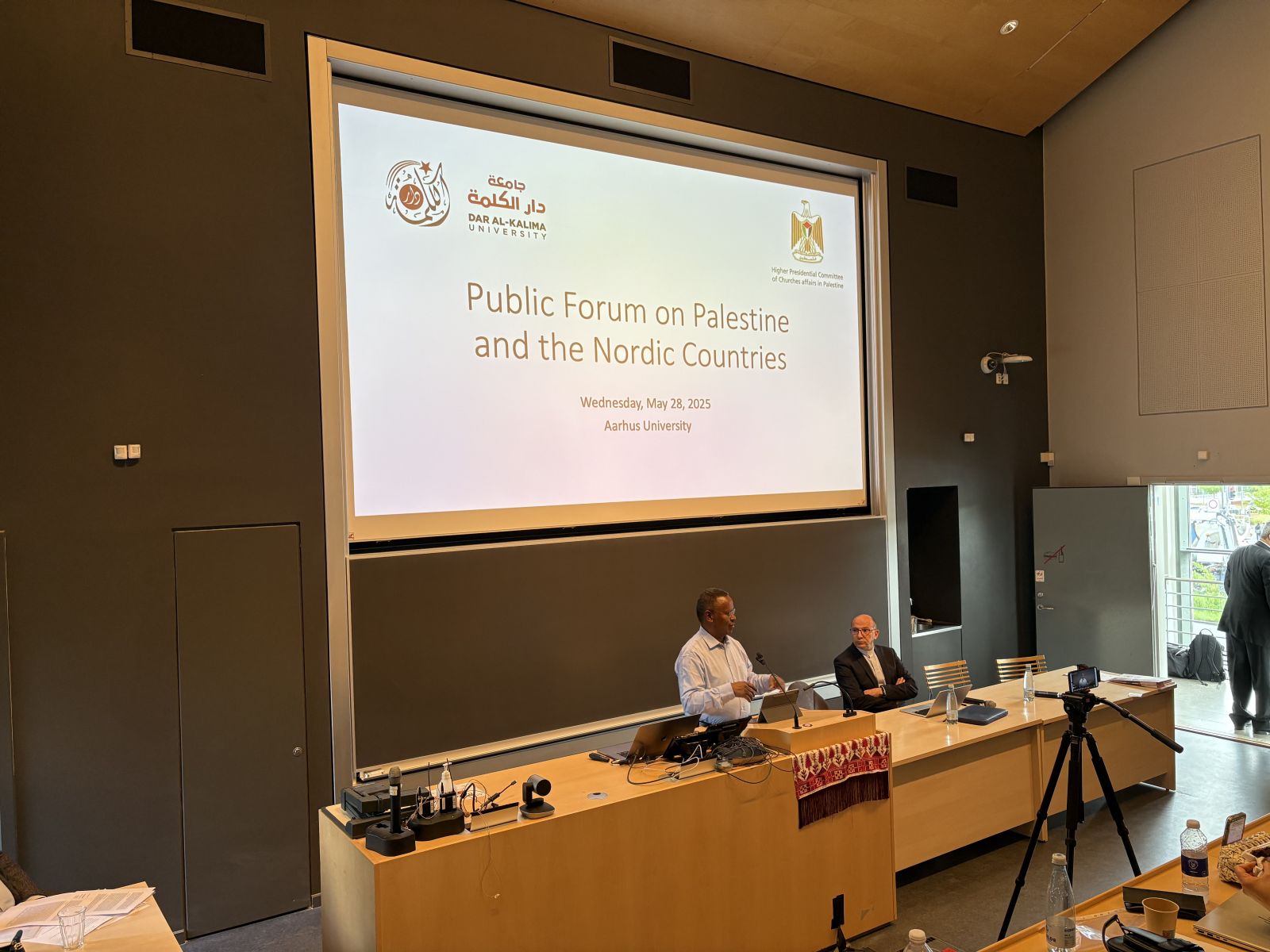
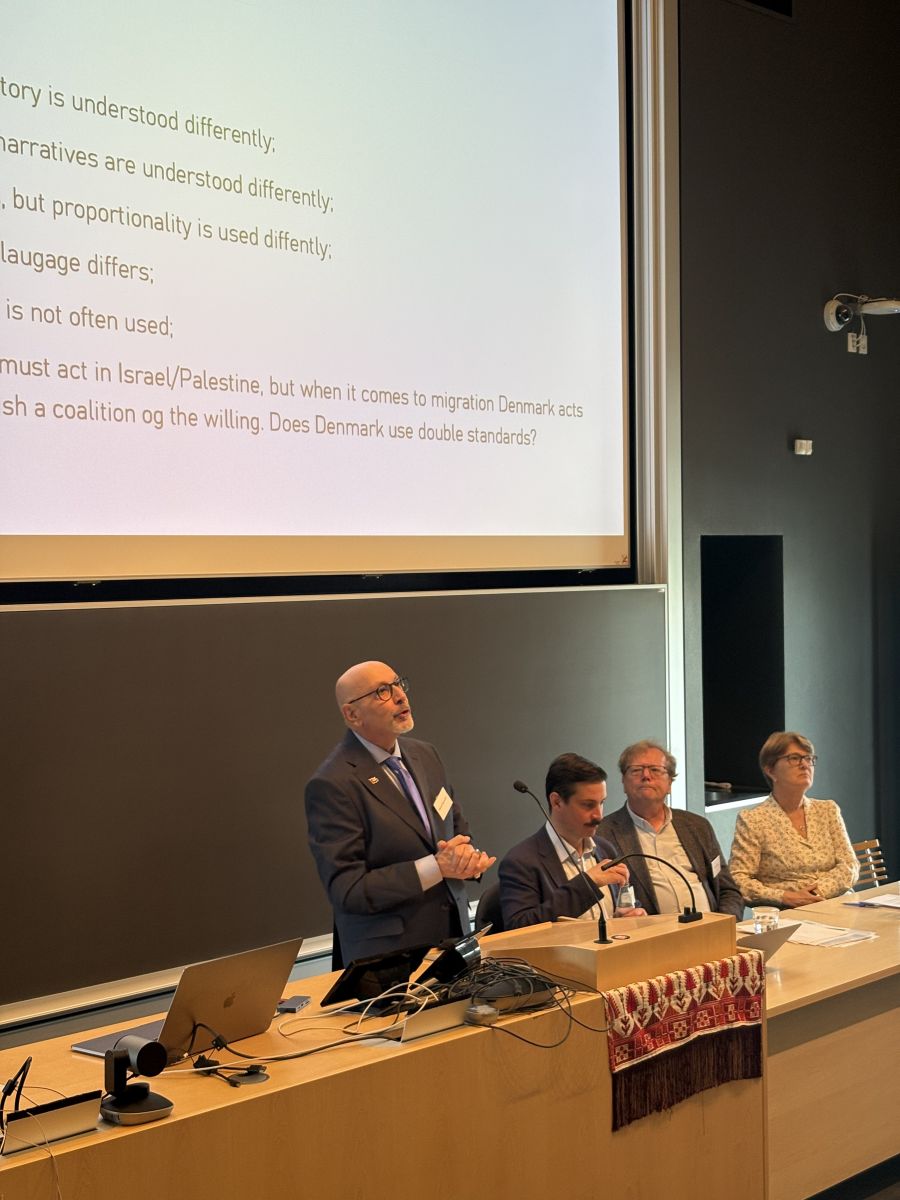
Ambassador Prof. Dr. Manual Hassassian




